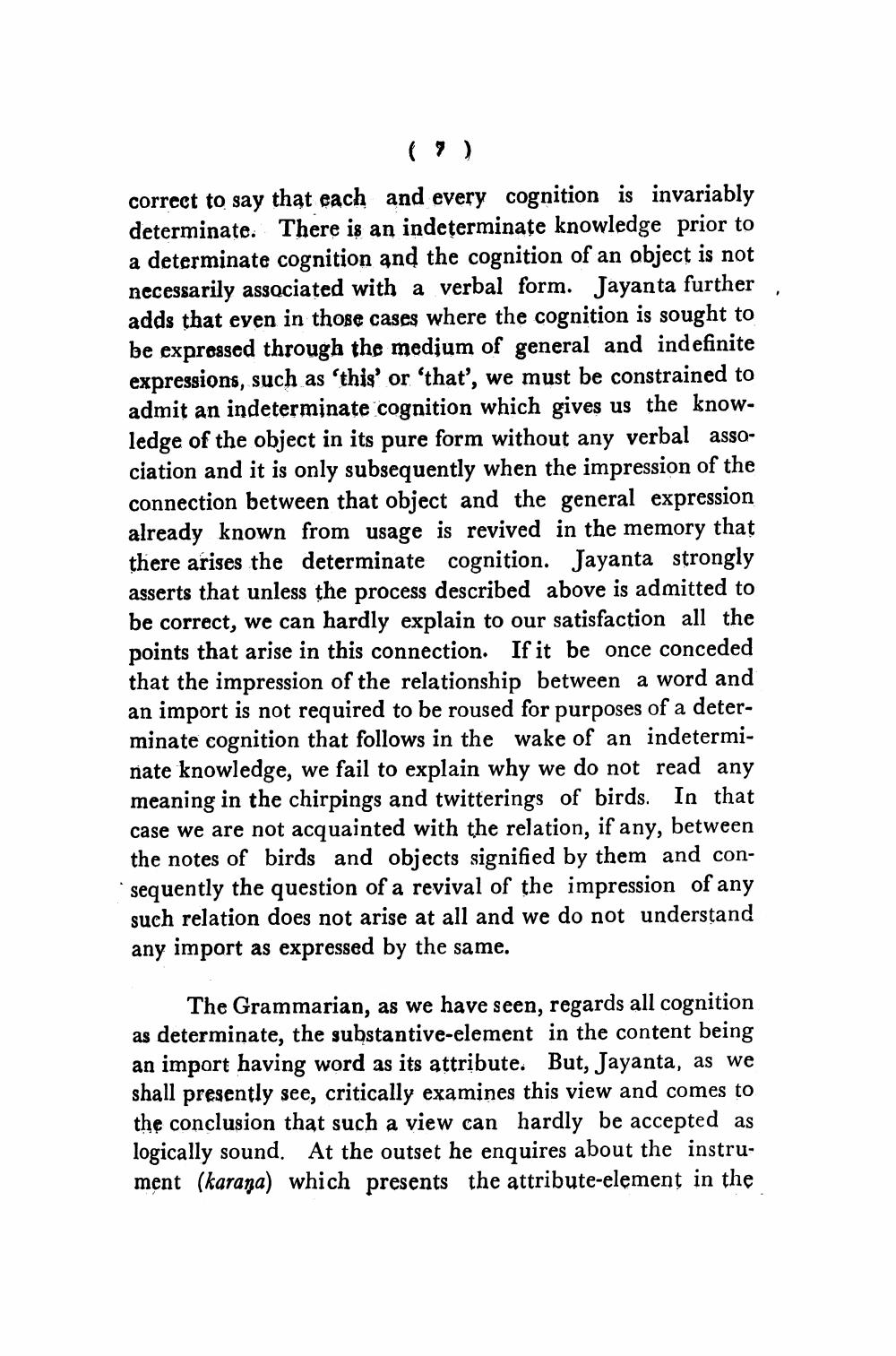________________
correct to say that each and every cognition is invariably determinate. There is an indeterminate knowledge prior to a determinate cognition and the cognition of an object is not necessarily associated with a verbal form. Jayanta further adds that even in those cases where the cognition is sought to be expressed through the medium of general and indefinite expressions, such as 'this' or 'that, we must be constrained to admit an indeterminate cognition which gives us the knowledge of the object in its pure form without any verbal association and it is only subsequently when the impression of the connection between that object and the general expression already known from usage is revived in the memory that there arises the determinate cognition. Jayanta strongly asserts that unless the process described above is admitted to be correct, we can hardly explain to our satisfaction all the points that arise in this connection. If it be once conceded that the impression of the relationship between a word and an import is not required to be roused for purposes of a determinate cognition that follows in the wake of an indeterminate knowledge, we fail to explain why we do not read any meaning in the chirpings and twitterings of birds. In that case we are not acquainted with the relation, if any, between the notes of birds and objects signified by them and consequently the question of a revival of the impression of any such relation does not arise at all and we do not understand any import as expressed by the same.
The Grammarian, as we have seen, regards all cognition as determinate, the substantive-element in the content being an import having word as its attribute. But, Jayanta, as we shall presently see, critically examines this view and comes to the conclusion that such a view can hardly be accepted as logically sound. At the outset he enquires about the instrument (karana) which presents the attribute-element in the




